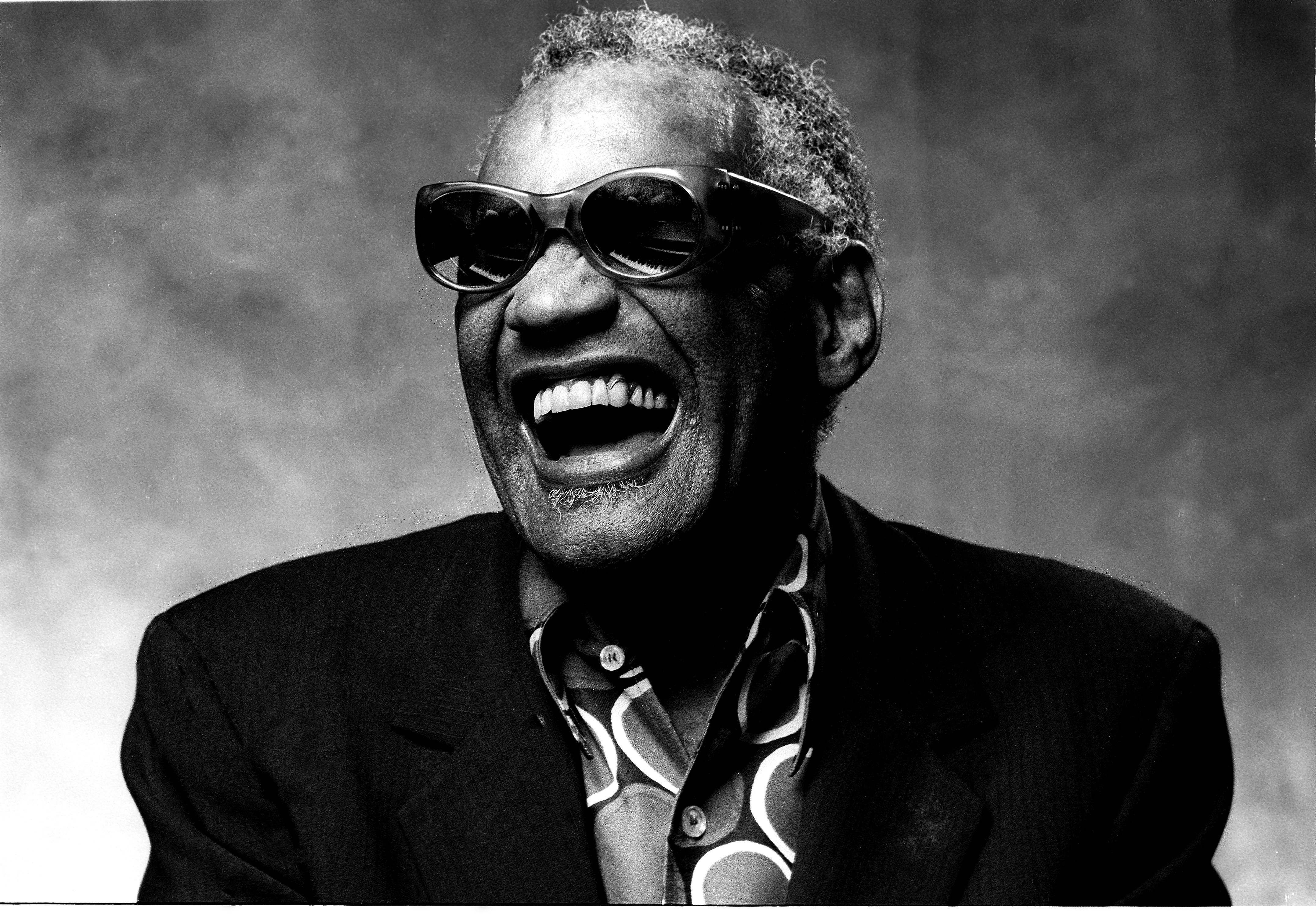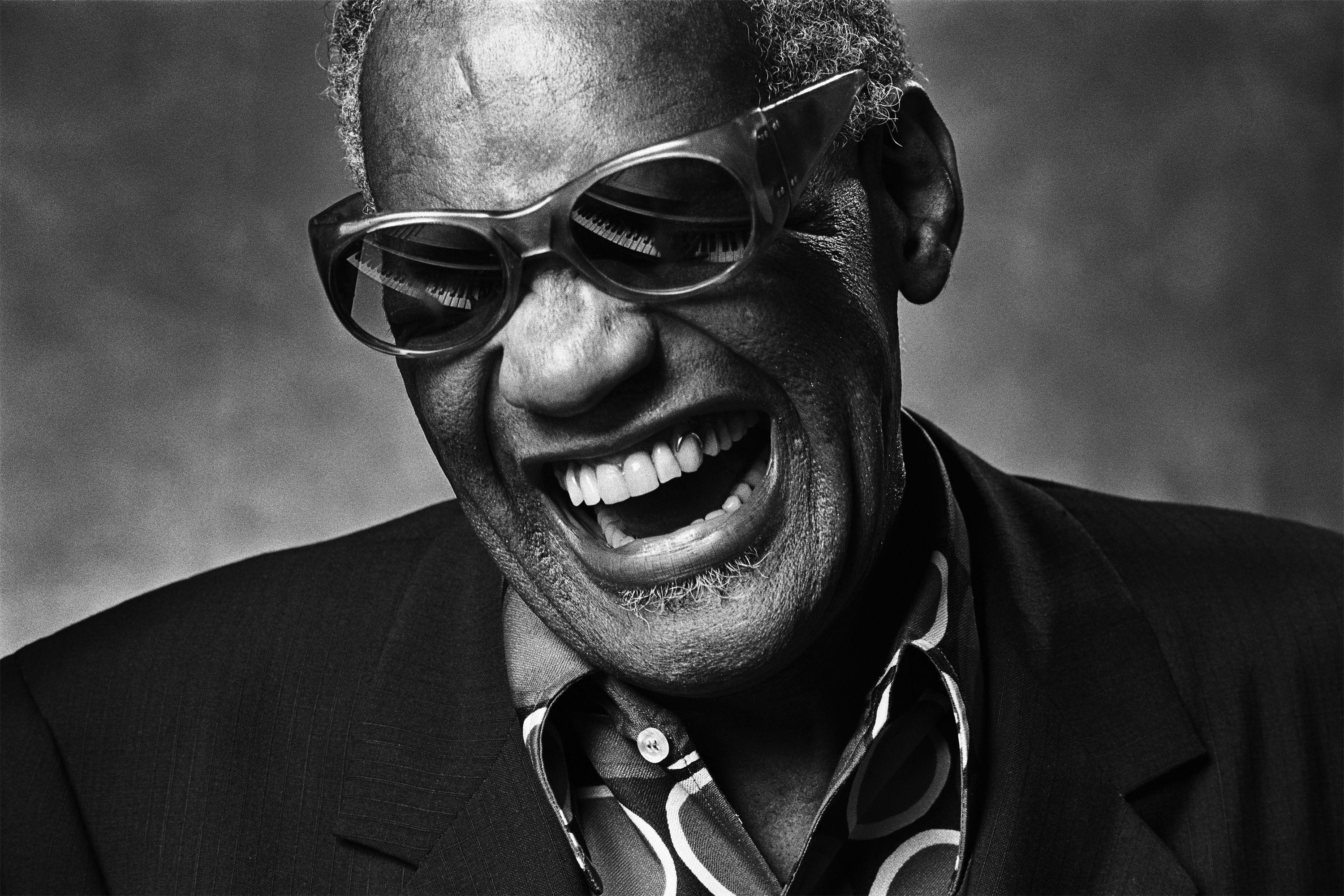When you think about the name Ray Charles, what comes to mind? For most people, it's a voice that could melt hearts, a piano that spoke emotions, and a man who transcended genres. Born in the small town of Albany, Georgia, Ray Charles wasn't just a musician; he was a force of nature. His music was the soundtrack of a generation, and his legacy continues to inspire millions. This isn't just about a guy who played the piano—it's about a legend who changed the world one note at a time.
Before we dive deep into the soulful journey of Ray Charles, let's take a moment to appreciate why he matters. In an era where music was often segregated, Ray broke down barriers with his unique blend of gospel, blues, jazz, and R&B. His sound wasn't just innovative; it was revolutionary. It's like he took all the elements of music and said, "Why can't we mix this up?" And guess what? It worked. Big time.
But here's the kicker—Ray wasn't just about the music. He was a fighter, a survivor, and a symbol of resilience. From overcoming blindness as a child to becoming one of the most celebrated musicians in history, his life story is nothing short of extraordinary. So, buckle up, because we're about to take a trip through the life, music, and legacy of Ray Charles. And trust me, it's gonna be worth it.
- Nancy Dow Movies Tv Shows A Complete Filmography Guide
- Tito Jacksons Net Worth The Untold Story Behind The Millions
Here's a quick roadmap of what we'll cover:
- Biography: The Early Years of Ray Charles
- Ray Charles' Musical Journey: From Gospel to Soul
- The Influence of Ray Charles on Modern Music
- Awards and Recognition: Ray's Legacy in Numbers
- The Personal Life of Ray Charles
- Discography: A Look at Ray's Iconic Albums
- Challenges Faced by Ray Charles
- Cultural Impact: How Ray Changed the Music Industry
- Ray Charles' Legacy: The Man Who Redefined Music
- Conclusion: Why Ray Charles Still Matters Today
Biography: The Early Years of Ray Charles
The Life of Ray Charles: From Georgia to Stardom
Ray Charles Robinson was born on September 23, 1930, in Albany, Georgia. Growing up in a humble household, Ray faced challenges from an early age. His father, Bailey Robinson, worked as a mechanic and handyman, while his mother, Aretha Robinson, was a sharecropper. Life wasn't easy, but Ray's mom instilled in him a sense of determination that would shape his future.
Tragedy struck when Ray was just six years old. He began losing his sight due to glaucoma, a condition that would eventually leave him completely blind. But instead of letting this setback define him, Ray leaned into his passion for music. By the age of seven, he was already playing the piano at a local cafe. His mom encouraged him, saying, "You might not see the keys, but you can feel the music."
By the time he was a teenager, Ray had mastered not only the piano but also the saxophone, clarinet, and trumpet. He moved to Seattle in 1947, where he began performing with local bands. It was here that he started developing his signature style, blending gospel, blues, and jazz into something entirely new.
Ray Charles' Musical Journey: From Gospel to Soul
The Evolution of Ray Charles' Sound
Ray Charles' journey in music wasn't just about talent—it was about innovation. In the early 1950s, he signed with Atlantic Records, a move that would change the course of his career. It was during this time that he began experimenting with different genres, creating what would become known as "soul music." His 1954 hit "I've Got a Woman" is often credited as one of the first soul songs, blending gospel influences with R&B sensibilities.
But Ray wasn't done there. He continued to push boundaries, releasing hits like "What'd I Say" in 1959, which became a crossover success, appealing to both black and white audiences. His ability to connect with people from all walks of life was unmatched. It's like he had this magical way of making everyone feel like he was singing just for them.
Let's break it down:
- 1954: "I've Got a Woman" – The birth of soul music.
- 1959: "What'd I Say" – A crossover hit that solidified his place in music history.
- 1962: "Modern Sounds in Country and Western Music" – An album that introduced country music to a new audience.
The Influence of Ray Charles on Modern Music
How Ray Charles Changed the Game
If you're wondering why Ray Charles is such a big deal, here's the answer: he changed the game. Before Ray, music was often divided along racial lines. Black artists were largely confined to the R&B and blues scenes, while white artists dominated pop and country. Ray broke those barriers, proving that music could transcend race and genre.
His influence can be seen in the work of countless artists, from Aretha Franklin to Stevie Wonder to Alicia Keys. They all owe a debt to Ray for paving the way. It's like he said, "Music is music. Why should we limit ourselves to one style?" And that's exactly what he did—limited himself to nothing.
But Ray's impact wasn't just musical. He was also a civil rights advocate, using his platform to speak out against injustice. He refused to perform in segregated venues, and his actions inspired many others to do the same. It's not just about the music—it's about the message.
Awards and Recognition: Ray's Legacy in Numbers
The Numbers Behind the Legend
When it comes to awards, Ray Charles didn't just win a few—he dominated. Over the course of his career, he received 12 Grammy Awards, including a Lifetime Achievement Award in 1987. He was inducted into the Rock and Roll Hall of Fame in 1986 and the Blues Hall of Fame in 2013. The numbers speak for themselves:
- 12 Grammy Awards
- Rock and Roll Hall of Fame Inductee
- Blues Hall of Fame Inductee
But here's the thing—Ray didn't do it for the awards. He did it for the music. And that's why his legacy endures.
The Personal Life of Ray Charles
Beyond the Music: Ray's Life Offstage
While Ray Charles may be best known for his music, his personal life was just as fascinating. He was married twice and had 12 children, though his relationships were often complex. Despite his success, Ray struggled with addiction, particularly to heroin, which he battled for years. But like everything else in his life, he faced this challenge head-on, eventually overcoming his addiction in the 1960s.
Here's a quick look at some key facts:
- Marriages: Married twice, first to Eileen Williams and later to Della Bea Robinson.
- Children: 12 children from various relationships.
- Addiction: Battled heroin addiction but successfully overcame it in the 1960s.
Discography: A Look at Ray's Iconic Albums
The Albums That Defined an Era
Ray Charles' discography is nothing short of legendary. From his early days with Atlantic Records to his later work with other labels, he left an indelible mark on the music industry. Here are some of his most iconic albums:
- 1957 – The Genius of Ray Charles: A groundbreaking album that showcased his unique style.
- 1962 – Modern Sounds in Country and Western Music: An album that introduced country music to a new audience.
- 1977 – True to Life: A later album that proved Ray's influence was still strong.
Challenges Faced by Ray Charles
Overcoming Adversity: Ray's Journey Through Hardship
Ray Charles faced more challenges in his life than most people could imagine. From losing his sight as a child to battling addiction, he faced it all with grace and resilience. But perhaps the biggest challenge he faced was the racial segregation of the time. As a black artist in the 1950s and 60s, Ray often found himself performing in venues that were segregated. He refused to accept this, using his platform to advocate for change.
Here's how he put it: "I'm not just a musician; I'm a human being. And I demand to be treated as such." His actions inspired countless others to stand up for their rights, and his legacy as a civil rights advocate is just as important as his legacy as a musician.
Cultural Impact: How Ray Changed the Music Industry
The Man Who Broke Down Barriers
Ray Charles didn't just change music—he changed culture. By breaking down racial and genre barriers, he paved the way for future generations of artists. His influence can be seen in everything from the birth of soul music to the rise of hip-hop. It's like he said, "Why should we limit ourselves to one style? Music is music, and it belongs to everyone."
But Ray's impact wasn't just limited to music. He was also a trailblazer in the business world, becoming one of the first black artists to own the rights to his own music. This was a huge deal at the time, and it set a precedent for future artists. It's not just about the music—it's about the business, too.
Ray Charles' Legacy: The Man Who Redefined Music
Why Ray Charles Still Matters Today
Even today, decades after his death in 2004, Ray Charles remains one of the most influential musicians of all time. His music continues to inspire new generations, and his legacy as a civil rights advocate and business innovator endures. It's like he said, "Music is a universal language, and it has the power to bring people together."
So why does Ray Charles still matter? Because he didn't just make music—he made history. He broke down barriers, challenged conventions, and inspired millions. And that's why his legacy will live on forever.
Conclusion: Why Ray Charles Still Matters Today
As we wrap up this journey through the life and legacy of Ray Charles, it's clear that his impact on music and culture is unparalleled. From his early days in Georgia to his rise to stardom, Ray faced challenges head-on and emerged victorious. His music continues to inspire, his legacy continues to grow, and his influence continues to shape the industry.
So, what can we learn from Ray Charles? First, that music has the power to bring people together. Second, that adversity can be overcome with determination and resilience. And third, that we should never limit ourselves to one style or genre. As Ray said, "Music is music, and it belongs to everyone."
Now, it's your turn. Leave a comment, share this article, and let's keep the conversation going. Because Ray Charles wasn't just a musician—he was a legend. And legends never die.



Detail Author:
- Name : Oda Willms I
- Username : ukshlerin
- Email : kamryn.cruickshank@hotmail.com
- Birthdate : 1990-12-24
- Address : 310 Bailey Turnpike Apt. 844 South Abagail, VA 25571
- Phone : (727) 426-1102
- Company : Kling-Marquardt
- Job : Locomotive Engineer
- Bio : Quia aut eum veniam maxime eos quos temporibus. Aut consequuntur atque corporis doloremque et doloribus. Ut labore nisi ducimus quos.
Socials
linkedin:
- url : https://linkedin.com/in/keithwest
- username : keithwest
- bio : Aut minus qui aperiam est facere non.
- followers : 6965
- following : 2812
tiktok:
- url : https://tiktok.com/@west1973
- username : west1973
- bio : Dolores tempore ut beatae tempore amet.
- followers : 3663
- following : 2605
facebook:
- url : https://facebook.com/west2015
- username : west2015
- bio : Quis mollitia sit itaque iure tempore.
- followers : 4293
- following : 2708
instagram:
- url : https://instagram.com/keith_west
- username : keith_west
- bio : Non est beatae architecto maxime facere eum. Libero cum reprehenderit itaque nesciunt et nihil.
- followers : 4402
- following : 2386